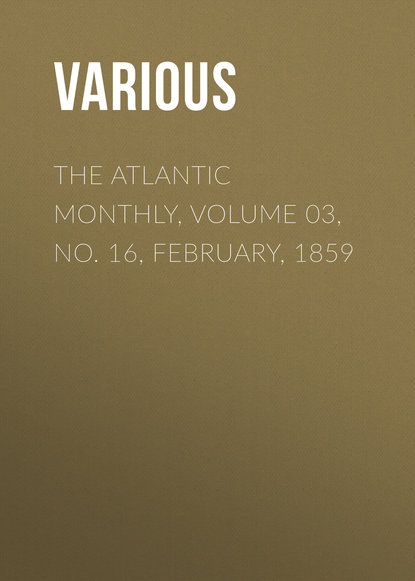По всем вопросам обращайтесь на: info@litportal.ru
(©) 2003-2024.
✖
The Atlantic Monthly, Volume 03, No. 16, February, 1859
Автор
Год написания книги
2018
Настройки чтения
Размер шрифта
Высота строк
Поля
26
Among which (setting aside a few remarks of Goethe) we are inclined to value as highly us anything Tieck's Essay on the Element of the Wonderful in Shakspeare.
27
Bacon's Works, by Ellis, Spedding, & Heath. Vol. III. p. 303, note.
28
Mr. Dyce says the word supplied by Rowe was "fasting," a manifest slip of the pen, and worth notice only as showing how easily errors may be committed.
29
For the comprehension of the laws of some of the lighter measures, no book is so instructive as Mother Goose's Melodies. That excellent lady was one of the best metrists the language has produced.
30
Suppression of the Monasteries, p. 13.
31
Mr. White cites Dr. Richardson, but the Doctor is not always a safe guide.
32
It is singular, if the s be a corruption, that the Germans should have fallen into the same in their vorwärts and rückwärts. We are inclined to conjecture the s a genitival one, supplying the place of a missing of and von respectively. We formerly said, "of this side," "of that side," etc.; but the idiomatic sense of of is so entirely lost, that Mr. Craik (English of Shakspeare) actually supposes o'clock and o'nights to be contractions of "on the clock," "on nights," and that, although we still say habitually, "of late," "of old." The French use of de, and the Italian of di, is parallel. The Italians have also their avanti and davante, and no one forgets Dante's
"Di quà, di là, di su, dí giù, gli mena."
33
Let us remark, in passing, that the spellings "Berowne," "Petruchio," and "Borachio" are strong indications that the manuscript copies of the plays in which they occur were dictated to an amanuensis.
34
Everybody remembers how Scaliger illustrated it in the case of the Gascons,—Felices, quibus vivere est bibere.
35
Praefatio, p. 6. We abridge his statement.
36
Mr. White is mistaken in thinking that to say "my country" for "my county" was a peculiarity of Shallow. It was common in the last century in England. He is wrong also in thinking that he was restoring a characteristic vulgarism in aleven. Gabriel Harvey uses it, and says there is no difference in sound between that and a leaven.











